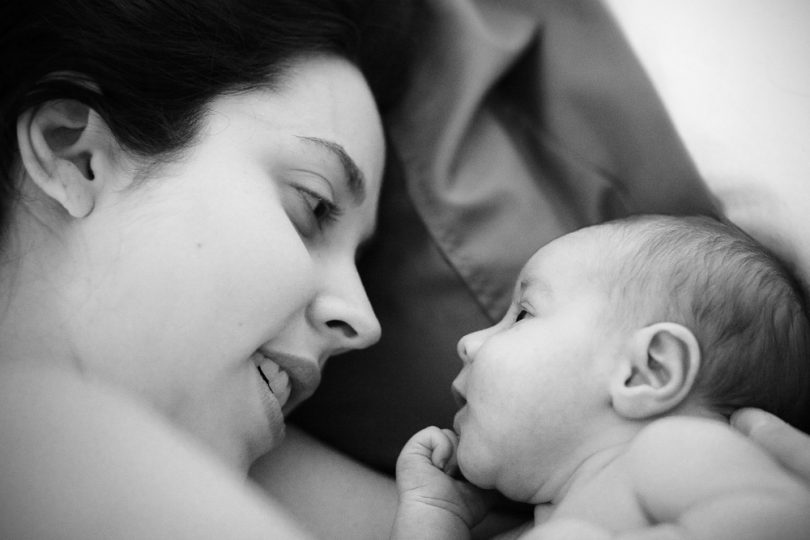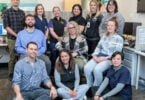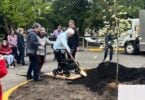World Breastfeeding Week (WBW), celebrated August 1 to 7, is a global campaign to raise awareness and galvanise action on themes related to breastfeeding. This year’s theme is “Support Breastfeeding for a Healthier Planet.”
If anyone was going to be successful at breastfeeding, Andrea Firmani was confident it would be her. After all, by the time her third child was due, she had been a labour and delivery nurse at St. Paul’s Hospital for almost a decade. On top of that, she was also teaching breastfeeding classes. And she had worked through many breastfeeding issues with her first child. But the third baby proved to be Firmani’s most challenging.
“It felt confusing, to be honest. I thought, ‘Who can I ask because I’m the person people ask!’ I just wanted someone to tell me what to do,” Firmani recalls.

Then she did what she had been counselling other women to do. She turned to one of the lactation consultations at St. Paul’s. Together, they made a plan that got her focused on small goals and moving forward, one step at a time. It was that bridge that gave her success.
“Lived experience” can help other women
Five years later, Firmani is now the maternity unit’s new clinical nurse educator for special projects. One of her areas of focus will be breastfeeding education, along with teaching prenatal virtual workshops. Breastfeeding classes are the latest addition to the virtual curriculum. They are two-hour private sessions with a nurse who specializes in lactation and breastfeeding.
“A lot of it is normalizing things, and looking at the small picture, not the big picture,” explains Firmani. “I like to tell women, ‘Let’s just talk about the next 24 hours.’”
Breastfeeding issues are common
By various estimates, upwards of two-thirds of women have trouble breastfeeding. At the same time, health experts continue to encourage moms to breastfeed exclusively up to six months of age. Yet, Firmani says prenatal education spends very little time on this. She’d like to see expectant moms set themselves up for success before any problems arise, rather than what most women do now – seek help after they have a problem.
“We spend a long time talking about how to deal with contractions in prenatal classes. But if we add up the time we are actually going to be dealing with contractions versus feeding your baby, we should be focusing a lot more time on breastfeeding,” says Firmani.

One example of something many new moms aren’t ready for is ‘night two’ – Firmani describes it as intense cluster feeding (a lot of short feeds over a few hours). Citing her experience at hundreds of deliveries over the years, she says this is often quite shocking for a first-time parent. There is often a feeling that something is wrong, with the belief that supplementing with formula will ‘fix’ the problem. But she emphasizes, “This is expected. It is biologically normal. It’s not going to be forever. We just have to move through it.”
Connecting with breastfeeding experts can be a challenge
Women seeking good information on breastfeeding challenges face another problem, says Firmani. Who do they turn to for help? Many of the medical experts involved in the labour and delivery process aren’t necessarily educated in lactation and breastfeeding. “Often, the first time someone asks to see your breasts is after the baby is out!” Firmani quips.
While she misses bedside nursing, Firmani is looking forward to supporting women in a different way, through her new role. Just recently, a pediatrician at the hospital reached out to her, seeking help for a patient in the clinic – a second-time mom who was having a lot of issues breastfeeding. Firmani watched the mom breastfeed, and offered a simple correction with the hand positioning. “The mom’s face lit up, the stress on the partner’s face just melted away. I was probably in there for about 15 minutes.”
The mom called the pediatrician a couple of days later and reported that the breastfeeding was going smoothly now with no problems.
And it’s that kind of feedback that confirms this is the perfect place for Firmani, sharing her expertise as a nurse, and her first-hand knowledge as a mom of three. “It’s amazing! It makes me feel good to watch a new parent really blossom, once they have the right information. Together, I think we can really change the postpartum experience.”






